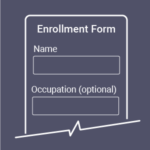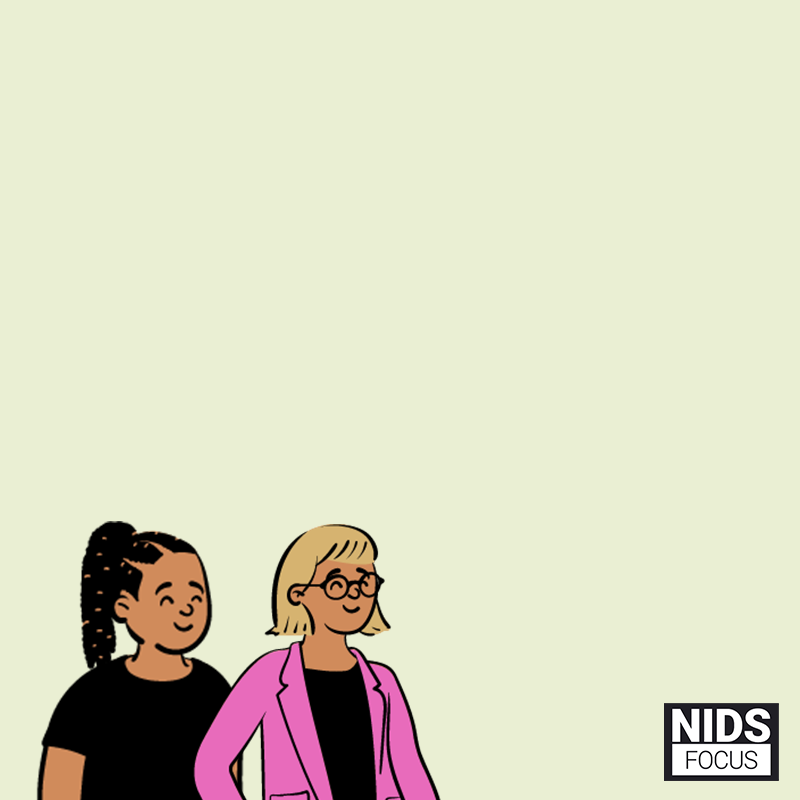
Distinguish Between Identity Information and Other Information
Only information that is directly related to establishing legal identity should be mandatory for enrollment
To register for NIDS, people should only have to provide the very basic personal data and information that is necessary to ensure accurate identification. Anything beyond that should be optional and clearly marked as such. The chief purpose of the NIDS system is to expand access to reliable legal identification among Jamaicans. Enrollment should therefore be as easy and inclusive as possible and not be unduly intrusive.
What This Could Look Like in Real Life
These are examples of what the NIDS Bill allows. These examples may not necessarily reflect the intention of the Bill, but are possible based on how the Bill was worded when it was tabled in 2020.
- 01. James and His Two Addresses
- 02. Mavis and Her Employment Status
- 03. Catherine and Her Partner

James lives in Balaclava, St. Elizabeth. But he stays in town with his grandma to attend UWI. He wants to register for NIDS because he needs an ID to qualify for the summer work programme.

When he completed his enrolment application he only listed his town address because he thought it would look better on his job applications.

According to the Bill, James could be charged with an offence because he did not list both his grandma’s address and his address in Balaclava. He could be fined up to $2 million dollars.
[Based on NIRA 2020, Section 11]

Mavis is unemployed and looking for work. The passport she previously used as an ID has expired and she has decided to register for a NIDS card instead. She doesn’t want “unemployed” to be associated with her identity so she writes “domestic worker”, which is the job she’s worked for the last 4 years.

According to the Bill, Mavis could be charged with an offence because she did not include her current employment status. She could be fined up to $2 million dollars.
[Based on NIRA 2020, Section 11]

Catherine recently moved to Jamaica for a job with an international organisation. She has been accompanied by her partner, Sarah. They are both registering for NIDS cards as individuals ordinarily resident in Jamaica.

The Bill makes one of two things possible: 1) Catherine and Sarah could enrol and list each other as their spouses OR 2) Catherine and Sarah could leave out their spousal information.

Either NIDS will become the first public institution to recognise same-sex unions, or Catherine and Sarah will commit an offence before the law. What should Catherine and Sarah do?
[Based on NIRA 2020, Section 11]
Details
When enrolling in NIDS, the authority is legally empowered to require a whole range of personal information and data, including marital status and name of spouse if applicable, any places of residence, and occupation. If a person leaves out information falling into any of these categories, it could be deemed as “Misleading” the Authority, which may result in them not being enrolled or even fined – even if that information is not needed to establish who they are. The main purpose of NIDS, however, is to ensure that more people across Jamaica have access to documentation they can use for identification purposes. Some currently struggle with access to such documentation, and to ensure a broad uptake, registration for NIDS should be made simple and straightforward. People who fear that their own personal situation or their inability to define certain information would make registration difficult or those who may simply not want to give that information not to register for NIDS at all. They will lose access to privileges and services provided through NIDS. Yet, information, such as who a person’s spouse is and what that spouse’s name is, is not needed to identify any particular individual (not least because unmarried people will not have to provide this information and can still be identified). NIDS should mandate only the information absolutely necessary on enrollment and clearly mark any additional information as purely optional.
Recommendations
- Minimize what biographical and biometric information is required for a person to enrol in NIDS
- Clearly mark any additional information to be collected as optional and remove fines related to this information
- Restrict the Authority’s discretion to deny enrolment
Status: Pending
Watch this space! We will provide an update once the Joint Select Committee has made a decision on this issue.
Last updated 2021-05-27
Comments, Questions?
Is there something we overlooked with this issue?
Have questions? Let us know!
